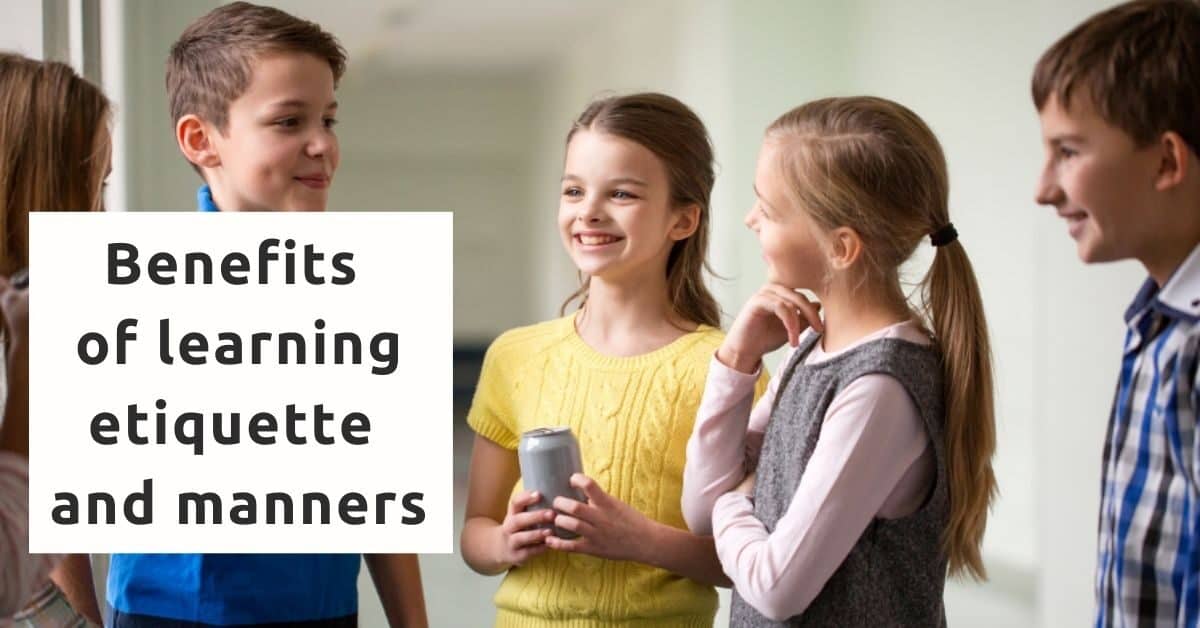Leanne Miltun-Latecka – Global Partner at The British School of Etiquette Poland – on the benefits of learning etiquette and manners for children and adults

What is Etiquette?
Etiquette is an unwritten code of behaviours designed to ease social interactions in both our personal and business lives. Learning and mastering the rules of Etiquette will help you build confidence, engage with others, and progress professionally.
For many people, the word ‘etiquette’ has somewhat unfairly acquired old-fashioned connotations that hark back to when gentlemen wore hats and ladies kept their hands covered by white gloves. Nothing could be further from the truth. Etiquette is just as relevant today as it was in Victorian times – perhaps even more so, as we live in a world where technological globalisation has seen our daily interactions transcend geographical boundaries and move beyond face-to-face communication.
Why is Etiquette important?
The point of Etiquette is not to confuse or irritate people. Quite the opposite, in fact: Etiquette exists to make everyone’s lives easier – including your own. When you know what rules to follow, you feel more at ease and can focus your attention entirely on the people around you. Being polite and respectful towards others is vital if you want to succeed in today’s competitive world.
Is Etiquette only relevant for the upper classes?
George Orwell once called England “the most class-ridden country under the sun,” but Etiquette permeates all walks of life and is not exclusive to the upper echelons of society. Learning the correct protocol will level the playing field as, in most social circles, how you conduct yourself carries more weight than which school you attended.
You treat everybody you meet with courtesy and kindness when you have good manners, regardless of age, background, or race. At The British School of Etiquette, we firmly believe that etiquette training is about breaking down barriers, not erecting them, and ultimately creating a more civilised and egalitarian society.
Why are Manners and Etiquette Important?
Etiquette refers to the rules that apply in each context. At the same time, manners involve more general guidelines for behaviour, such as respecting your elders and not interrupting when someone is speaking. Good manners reflect who you are and often remain similar across cultures.
On the other hand, Etiquette varies depending on a specific country’s culture and customs and must be adapted according to your geographical location. A good way of thinking about the difference is that manners are a mindset. At the same time, Etiquette provides the roadmap that will guide you safely through a myriad of social and professional situations.
If you display good manners and follow the rules of Etiquette, you will always present the very best version of yourself to the outside world.
Pier Forni, the author of Choosing Civility: The Twenty-Five Rules of Considerate Conduct
Benefits of learning Etiquette and Manners
- They Help you Earn Respect. We have all heard the Golden Rule; “Treat others the way you want them to treat us”. Practising good manners shows that you have respect for others, and in return, you are more likely to be respected, trusted, and cared for.
- The way you behave reflects your personality, and first impressions are based on your smile, eye contact, and greeting others. Often, people will determine your value to them by how you make them feel when they are in touch with you.
- They Charm Your Personality. Good manners and Etiquette embellish your personality by adding extra charm and enhancing your social skills. Learning manners from an early age ensures that they become second nature and simply a part of who you are. For example, saying “please” and “thank you” and offering your seat to an elderly or disabled person are all common courtesies that will create a positive impression.
- They Make Relationships Smoother. There are many reasons why good manners equal good relationships. First, they help you swallow your pride and be more considerate of the feelings and emotions of others.
- Practising good manners at home and in the workplace also stops building resentment and creates equal balance in relationships. It is a simple fact that people would much rather interact with those likeable than those who are not. If someone behaves rudely, your manners and Etiquette stop you from over-reacting.
- You have better control over your emotions and can deal with situations that arise in a calm and controlled way.
- They Increase Your Confidence. Good manners make you a more pleasant person to be around and draw others towards you like a magnet. Knowing how to behave and what is expected of you in social situations will earn you positive reinforcement from your peers and help build your confidence and self-esteem. People with strong social and emotional skills are also more likely to succeed academically and professionally.
- They Keep You Motivated and Happy. Being kind and generous towards other people makes you feel good about yourself. This inner contentment will help you maintain a calm and composed demeanour even when faced with difficult situations. Showing good manners and being kind to others makes you feel good about yourself, elevating your self-respect and keeping you motivated.
- They Impart Strength to Digest Failure. We all make mistakes and encounter setbacks from time to time. When good manners and Etiquette elevate your inner confidence, it gives you the strength to face your struggles head-on, absorb criticism and move on from them. In life, there will always be situations that test your patience or threaten to bring you down. However, with a positive mindset, you can maintain your composure and turn challenges into opportunities to learn and grow.
Why Should Children Learn Etiquette and Manners?
Knowing how to behave at school, social events, and family gatherings will instill confidence in children that will benefit them for life. Numerous studies show that confident children are happier, more resilient, and well adjusted than those who lack faith in their abilities.
Children are never too young to learn good manners. When they are taught good manners and etiquette, they learn to be polite, kind, and thoughtful towards others. This equips them with a social `toolbox’ of useful phrases and skills which can be used in any situation. In addition, children are more likely to create positive first impressions, build their self-esteem, make new friends more easily and be more successful in general.
Kidiquette™ covers all the etiquette essentials for young people, from table manners and writing thank you notes to holding conversations and knowing when to put away technological devices.
About the Author
Leanne Miltun-Latecka, Global Partner, The British School of Etiquette Poland
An internationally certified business coach, marketing specialist, brand developer, educator, Leanne Miltun-Latecka is a marketing professional with 30 years of experience in marketing dedicated mainly to the private healthcare industry. Leanne relocated to Poland from South Africa in 2019, from where she runs a marketing consultancy and business coaching practice.
She has established The British School of Etiquette for Poland, in partnership with The British School of Etiquette in the United Kingdom, the only Etiquette Training provider certified and accredited by four internationally recognised organisations.
Our Etiquette and emotional intelligence training programmes, which are an invaluable investment in your private life and your career, are relevant for everyone, irrespective of nationality, age, profession, education, or social standing.
Our courses for children build confidence by equipping them with the social skills, resilience and positive mindset to thrive at school and beyond. To find out more, please send an email to hello@thebritishschoolofetiquettepoland.com or contact us via telephone on +48 500408440. Visit our website: https://thebritishschoolofetiquettepoland.com.
Subscribe to our monthly newsletters in English to explore Poland and to learn about Poland! Once a month you will receive a Newsletter: ‘Explore Poland with Kids‘. You will find there family-friendly destinations in Poland – beautiful places in Poland worth visiting with children – from city break destinations to hiking in the mountains (lots of practical tips!); things you can’t miss in Poland in a given month; dates to remember, holidays, observances in Poland in a given month so you can mark your calendars accordingly.




